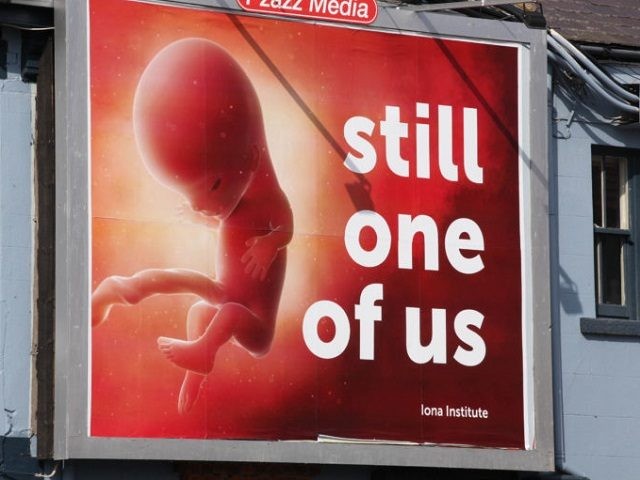Facebook has censored a pro-life ad campaign in Ireland on the grounds that the image of an unborn child qualifies as “graphic” or “violent” imagery.
Last week, the Dublin-based Iona Institute for Religion and Society launched a Facebook ad campaign called “still one of us,” a year after the passing of an Irish referendum that removed constitutional protections for the unborn.
While the campaign is running on a number of billboards in various parts of Ireland, Facebook has deemed the picture of a human fetus in the womb (see above) to be unacceptably graphic. Facebook proceeded to black out the image, replacing it with the warning announcing: “This photo may be sensitive to some people.”
Commenting on the move, Iona wondered aloud what about the life-affirming image of an unborn child in the womb could be considered “graphic or violent” in the minds of the Facebook censors.
The European Parliament itself is current airing a video on Facebook called “Choose your future” that opens with an image of an unborn child in the womb, Iona notes, which suggests that what Facebook finds offensive is not the image but rather the pro-life message.
“Are we now at a point where images of an unborn child in the womb cannot be shown in public even though parents see such images every day in hospitals all over the country and have no hesitation showing such images to their children?” Iona asks.
Meanwhile, elsewhere in Dublin Facebook has reportedly set up a “war room” devoted full time to monitoring the lead-up to the European elections, with 40 teams of engineers, scientists, researchers, threat specialists, and experts for each country ready to censor unacceptable material.
There are 500 people working on the elections, with the assistance of 21 supposed “fact-checkers,” operating in 14 different languages.
Facebook already shut down 23 pro-populist pages in Italy with a total of 2.5 million followers just two weeks before the European elections in what many have decried as meddling in the democratic process.
The vast majority of the pages supported the populist parties La Lega (The League) and the 5-Star Movement (M5S) — which currently govern Italy in a coalition.
Follow Thomas D. Williams on Twitter Follow @tdwilliamsrome

COMMENTS
Please let us know if you're having issues with commenting.